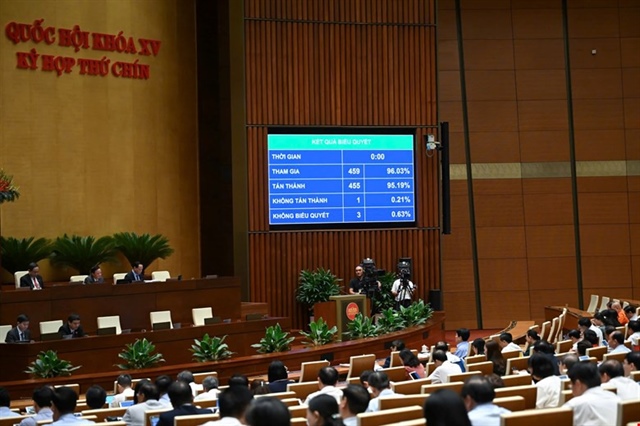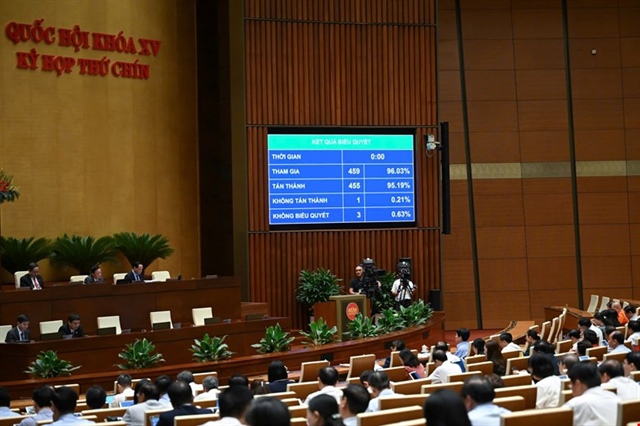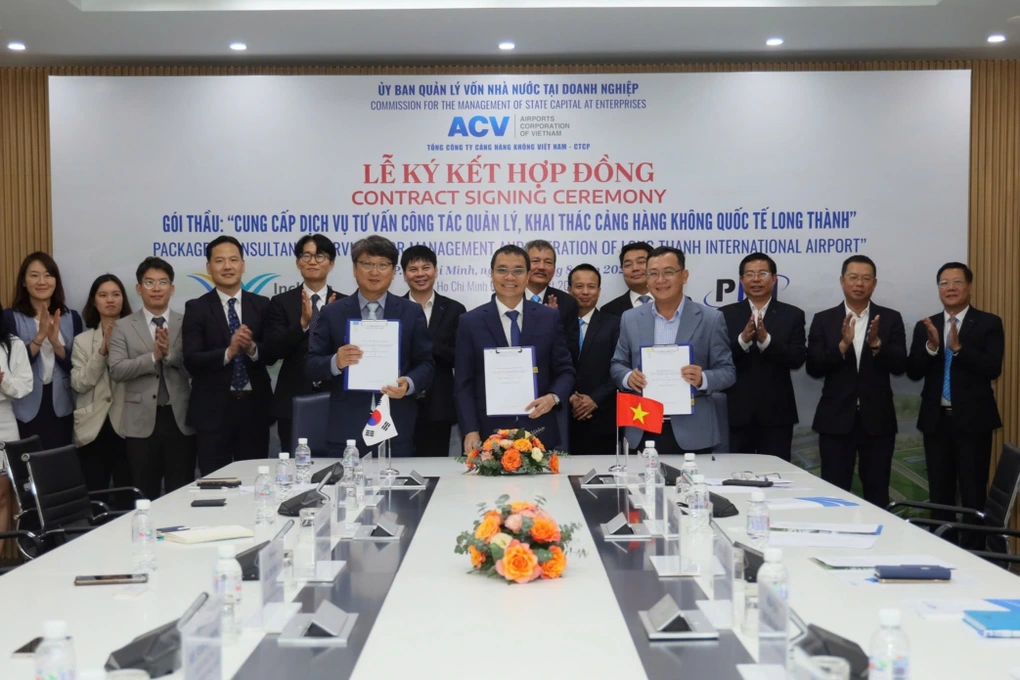The Law on Employment (amended) was passed with 8 chapters and 55 articles, a reduction of 3 articles from the initial draft law presented at the beginning of the 9th session of the National Assembly.
Compared to the current law, the amended law introduces 12 new groups of points, ensuring alignment with the amendment objectives and closely following the innovative thinking in legislation.
Specifically, the amended law supplements provisions on the state’s policy to support job creation, self-employment, and job transition. It also includes policies encouraging the development of vocational skills and job creation in the fields of science, technology, innovation, digital transformation, circular economy, and green economy.

National Assembly passes the Law on Employment (amended). Source: National Assembly |
The law also expands the beneficiaries of loans for working abroad, providing all laborers with the opportunity to access preferential credit when working abroad under contract. It authorizes the government to decide on expanding the beneficiaries of loans with lower interest rates than those for loans to support job creation, maintenance, and expansion, as well as loans for working abroad under contracts, based on socio-economic conditions and loan demands for employment solutions.
Notably, the law stipulates an expansion of the participants in unemployment insurance, including laborers with fixed-term contracts of one month or longer and part-time workers with monthly salaries equal to or higher than the mandatory social insurance contribution base salary…
According to the amended Law on Employment, the unemployment insurance contribution rate will be flexible. Accordingly, employees will contribute a maximum of 1% of their monthly salary, while employers will contribute a maximum of 1% of the total monthly salary of employees participating in unemployment insurance. The state will provide a maximum support of 1% of the total monthly salary of employees participating in unemployment insurance, funded by the central budget.
After being passed by the National Assembly, the Law on Employment (amended) will take effect from January 1, 2026.
|
According to Mr. Nguyen Dac Vinh, Chairman of the Culture and Society Committee, the Committee has coordinated with relevant agencies to fully absorb and explain the opinions of the National Assembly deputies. The revision of the draft law has closely followed the innovative thinking in legislation. For example, the law has absorbed, revised, and reflected the content related to the proposal to supplement the state’s policy on developing a national vocational skill strategy, the policy of prioritizing support for the private sector as the main driver of sustainable job creation, and the mechanism to financially support enterprises in retraining and upgrading workers’ skills. The law also authorizes the Government to decide on expanding the beneficiaries of loans with lower interest rates, based on socio-economic conditions and loan demands for employment solutions. In addition, the Culture and Society Committee also suggested that the Government continue to study the contributed opinions and elaborate on the implementation of support policies for training, retraining, and upgrading the skills of unemployed insured laborers to meet the needs of the labor market, digital technology, artificial intelligence, climate change, and population aging. |
By Thế Vinh – 10:23, June 16, 2025
Microsoft Vietnam Named in Social Insurance Delinquency List for 3 Billion VND
Microsoft Vietnam Limited Liability Company has been operating since 2007 as a subsidiary of Microsoft Corporation (USA), a global technology leader.
Does Resigning Before Retirement Affect Unemployment Benefits?
“For those eager to embark on a new chapter before hitting the retirement age, there’s good news. A pre-retirement transitional period can be eased with unemployment benefits, provided one meets the four essential criteria. Read on to discover if you’re eligible and learn how to navigate this interim phase with financial support.”
Unveiling a New Era of Unemployment Benefits: Navigating a Compassionate Course
“The proposed amendments to the Labor Law (amended) suggest that in cases where an employee unilaterally terminates their labor contract in violation of the Labor Code, or unilaterally terminates their employment contract in accordance with the Law on Public Employees, they will not be eligible for unemployment benefits.”
“Employer’s Liability for Delayed or Evaded Unemployment Insurance Contributions for Employees”
The proposed amendments to the Labor Law seek to protect the interests of employees by holding employers accountable for their failure to pay sufficient unemployment insurance contributions. In such cases, employers will be required to compensate their employees by paying an amount equivalent to the unemployment benefits that the employee would have otherwise been entitled to receive.














































